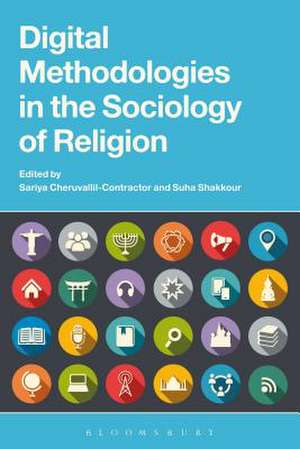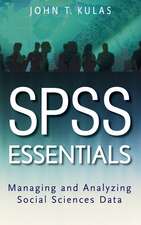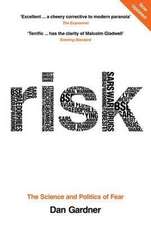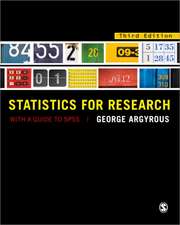Digital Methodologies in the Sociology of Religion
Editat de Sariya Cheruvallil-Contractor, Suha Shakkouren Limba Engleză Paperback – 16 dec 2015
| Toate formatele și edițiile | Preț | Express |
|---|---|---|
| Paperback (1) | 231.70 lei 6-8 săpt. | |
| Bloomsbury Publishing – 16 dec 2015 | 231.70 lei 6-8 săpt. | |
| Hardback (1) | 714.63 lei 6-8 săpt. | |
| Bloomsbury Publishing – 16 dec 2015 | 714.63 lei 6-8 săpt. |
Preț: 231.70 lei
Preț vechi: 266.34 lei
-13% Nou
Puncte Express: 348
Preț estimativ în valută:
44.35€ • 46.56$ • 36.64£
44.35€ • 46.56$ • 36.64£
Carte tipărită la comandă
Livrare economică 31 ianuarie-14 februarie 25
Preluare comenzi: 021 569.72.76
Specificații
ISBN-13: 9781472571151
ISBN-10: 1472571150
Pagini: 256
Dimensiuni: 156 x 234 x 13 mm
Greutate: 0.41 kg
Editura: Bloomsbury Publishing
Colecția Bloomsbury Academic
Locul publicării:London, United Kingdom
ISBN-10: 1472571150
Pagini: 256
Dimensiuni: 156 x 234 x 13 mm
Greutate: 0.41 kg
Editura: Bloomsbury Publishing
Colecția Bloomsbury Academic
Locul publicării:London, United Kingdom
Caracteristici
Includes in-depth discussions of ethical considerations in digital research in the sociology of religion, and provides practical tips to readers for approaching their own research
Notă biografică
Sariya Cheruvallil-Contractor is a Research Fellow at the Centre for Trust, Peace and Social Relations, at Coventry University, UK.Suha Shakkour is Senior Lecturer in Sociology at the University of Derby, UK.
Cuprins
List of FiguresAcknowledgementsList of ContributorsIntroduction: Digital Methodologies in the Sociology of Religion, Sariya Cheruvallil-Contractor (Coventry University, UK) and Suha Shakkour (University of Derby, UK)Section I: Digitising Research in the Sociology of Religion1. Methodological Challenges, Innovations and Growing Pains in Digital Religion Research, Heidi A Campbell (Texas A&M University, USA) and Brian Altenhofen (Texas A&M University, USA)2. Surveying the Religious and the Non-Religious, Tristram Hooley (University of Derby, UK) and Paul Weller (University of Derby, UK)3. Online Crowdsourcing Methods for Identifying and Studying Religious Groups as Special Populations, Victoria A. Springer (University of Nevada, Reno), Peter J. Martini (University of Nevada, Reno) and James T. Richardson (University of Nevada, Reno)Section II: Social Networking Sites and Digital Ethnography4. Facebook as anti-social media: using Facebook groups to engage opponents to the building of Dudley mosque, Chris Allen (University of Birmingham, UK)5. Antagonism in religious discourse on YouTube, Stephen Pihlaja (Newman University, UK)6. Online Sufism - Methodological Thoughts on Researching Esoteric Islam in an Online context, Sariya Cheruvallil-Contractor (Coventry University, UK)7. Studying Digital Hinduism, Heinz Scheifinger (King Fahd University of Petroleum and Minerals, UK)8. Young Sikhs' Religious Engagement Online, Jasjit Singh (University of Leeds, UK)Section III: Digital Communication9. Studying Apps: Research Approaches to the Digital Bible, Tim Hutchings (Durham University, UK)10. Videoconferencing as a tool facilitating feminist interviews with Muslim women who wear the niqab, Anna Piela (Leeds Trinity University, UK) 11. The Online Communication Model: A theoretical framework to analyse the Institutional Communication on the Internet, Daniel Arasa (Pontifical University of the Holy Cross, Italy) and Juan Narbona (Pontifical University of the Holy Cross, Italy)12. Researching religious authority and organization: Digital and social media communication opportunities and challenges, Pauline Hope Cheong (Arizona State University, USA), Boris H. J. M. Brummans (University of Montreal, Canada) & Jennie M. Hwang (University of Montreal, Canada)Section IV: Virtual Reality and Religion13. Online Ethnographic Research: Avatars in Virtual Worlds, William Sims Bainbridge (National Science Foundation, USA) 14. Researching Religion, Digital Games and Gamers. (E-)Merging Methodologies, Simone Heidbrink (University of Heidelberg, Germany), Tobias Knoll (University of Heidelberg, Germany), Jan Wysocki (University of Heidelberg, Germany)15. The G-d in the Machine: Studying the Representation and Performance of Judaism in PC Games using Multimodal Corpus-assisted Critical Discourse Analysis, Isamar Carrillo Masso (Bangor University, UK)Afterword: Sariya Cheruvallil-Contractor (Coventry University, UK) and Suha Shakkour (University of Derby, UK)BibliographyIndex
Recenzii
A phenomenal example of the masterful interweaving of the sociological study of religion with the ever-transforming world of digital technology, which makes it a must read for those interested in those subjects that fall within or between these two categories.
This volume is both a practical guide as well as a theoretical one, and encourages further research and conversation in the area of digital methods, ethics, and ethnographies. Digital Methodologies would be valuable not only to those whose research takes place in digital domains, but also as a helpful guide in distinguishing new from traditional methodologies, or to promote the use of new technologies and approaches in seminars or even the classroom. As a digital researcher, I found it timely, useful, and insightful.
This book is an essential resource for anyone thinking about using digital technologies in the social study of religious belief and non-belief. It should be on the reading lists of every research methods course and every course in the sociology of religion.
A practical handbook for digital methods and methodologies, and a wide ranging exploration of belief and faith communities-socially and digitally. From crowdsourcing to apps, this book demonstrates that digital methodologies are not just about doing research digitally, they are about understanding the social and the digital as one-digital contexts as well as digital methods, social media as a means and a lens, and the ethical challenges that inevitably arise. At once accessible and thought provoking, this book is set to be an effective platform for teaching and a rich basis for future research in the sociology of belief communities.
Digital Methodologies manages to be the rarest of methodology books: practical, focused, and filled with meaty case studies, making it useful to junior and senior scholars alike. The burgeoning study of digital religion-born from within so many disciplines-lacked the cohesiveness necessary for moving a research agenda forward. This book brings order to that chaos and establishes best practices, whether the research is honed on religious digital communication, virtual realities, social media or digital ethnography.
This volume is both a practical guide as well as a theoretical one, and encourages further research and conversation in the area of digital methods, ethics, and ethnographies. Digital Methodologies would be valuable not only to those whose research takes place in digital domains, but also as a helpful guide in distinguishing new from traditional methodologies, or to promote the use of new technologies and approaches in seminars or even the classroom. As a digital researcher, I found it timely, useful, and insightful.
This book is an essential resource for anyone thinking about using digital technologies in the social study of religious belief and non-belief. It should be on the reading lists of every research methods course and every course in the sociology of religion.
A practical handbook for digital methods and methodologies, and a wide ranging exploration of belief and faith communities-socially and digitally. From crowdsourcing to apps, this book demonstrates that digital methodologies are not just about doing research digitally, they are about understanding the social and the digital as one-digital contexts as well as digital methods, social media as a means and a lens, and the ethical challenges that inevitably arise. At once accessible and thought provoking, this book is set to be an effective platform for teaching and a rich basis for future research in the sociology of belief communities.
Digital Methodologies manages to be the rarest of methodology books: practical, focused, and filled with meaty case studies, making it useful to junior and senior scholars alike. The burgeoning study of digital religion-born from within so many disciplines-lacked the cohesiveness necessary for moving a research agenda forward. This book brings order to that chaos and establishes best practices, whether the research is honed on religious digital communication, virtual realities, social media or digital ethnography.














